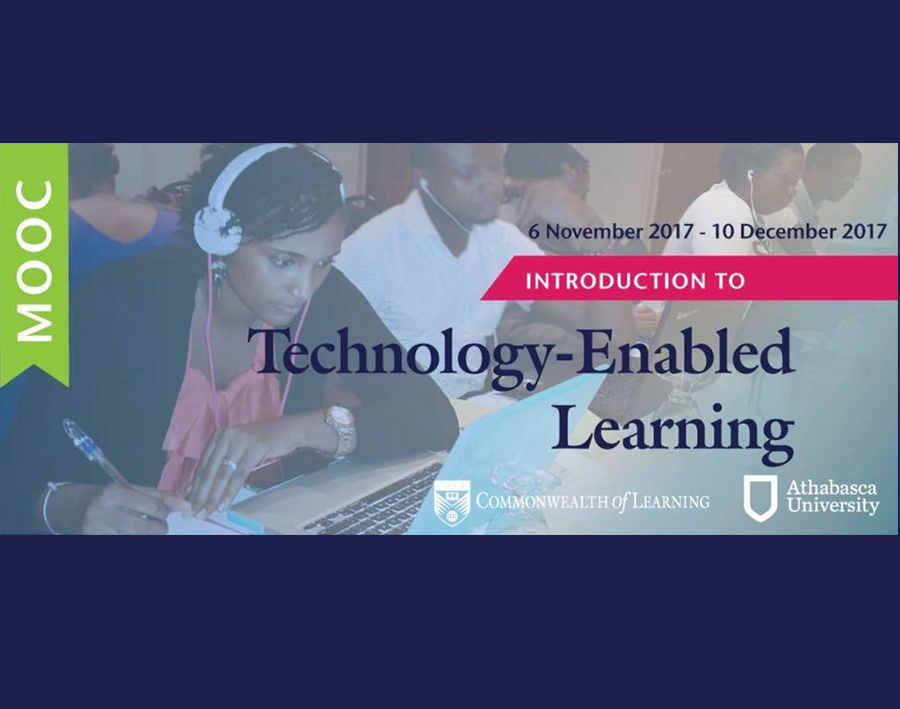
Massive open online courses (MOOCs) have emerged as an important way to increase access to quality learning opportunities. Having developed the guidelines for quality assurance and accreditation of MOOCs as part of the technology-enabled learning (TEL) implementation in educational institutions, COL focussed on strengthening the face-to-face training in partner institutions and beyond to assist teachers adopt TEL and use blended learning. To provide training opportunities to a large number of teachers, COL decided to develop a MOOC on TEL and entered into a collaboration with the Centre for Distance Education (CDE) at the Athabasca University – Canada’s open university, in 2016. The MOOC on “Introduction to Technology-Enabled Learning” was offered twice in 2017.
Over 5,000 participants attended the TEL-MOOC1 and TEL-MOOC2 (the first offering and second offering of the MOOC). Registration in TEL-MOOC2 was over three times that of the registration in TEL-MOOC1. While the TEL-MOOC1 had participants from 75 countries (including 40 Commonwealth member countries), the TEL-MOOC2 had participants from 94 countries (including 48 Commonwealth member countries). COL used the MOOC management system-mooKIT-developed by the Indian Institute of Technology, Kanpur. Dr Martha Cleveland-Innes and Dr Nathaniel Ostashewski designed and led the MOOCs with support from a team of technical and teaching assistants.
While designing the five weeks programme, the design team in consultation with COL’s Education Specialist: eLearning, Dr Sanjaya Mishra, organised a workshop in Edmonton, Canada and outlined the contents, open resources, available videos, and the certification system to be adopted for the course. The TEL-MOOC was designed to be (i) learner-centred; (ii) highly engaging via a multi-modal, media-rich online environment; (iii) directly instructed via video and text-based media; (iv) facilitated via weekly opening and closing videos; (v) supported by roving learning-support teaching assistants throughout; (vi) freely accessible; and (vii) a repository of relevant resources, during and after the course. The Community of Inquiry (CoI) theoretical framework provided guidance for the instructional processes in TEL MOOC.
The results of both cohorts of the TEL-MOOC showed that the successful certification rate in TEL-MOOC1 was about 11% and increased to 18% in TEL-MOOC2. Considering the usual success rate of MOOCs, this certification rate is very high. Most of the learners in this MOOC expressed satisfaction with the instruction and technology and look forward to enrolling in similar MOOCs offered by COL in collaboration with reputable institutions.
COL is studying the learning analytics to learn more from these courses. Preliminary findings of both cohorts can be found in the linked reports.
Reports


